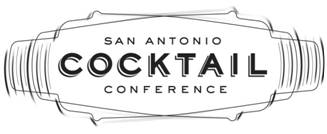 Tito Beveridge (that’s his real name) is an unlikely character to be competing with the likes of Smirnoff, Belvedere, and Absolut when it comes to makig vodka. He’s a former petroleum industry geologist who went to UT. He worked in the US and South America before he switchied to mortgage banking. All the while, he nursed an interest in making spirits. If you knew him when, you probably were a recipient of a gift which contained his latest homemade vodka. When the mortgage market hit a downturn in the early 90s, he decided to turn his hobby into his occupation.
Tito Beveridge (that’s his real name) is an unlikely character to be competing with the likes of Smirnoff, Belvedere, and Absolut when it comes to makig vodka. He’s a former petroleum industry geologist who went to UT. He worked in the US and South America before he switchied to mortgage banking. All the while, he nursed an interest in making spirits. If you knew him when, you probably were a recipient of a gift which contained his latest homemade vodka. When the mortgage market hit a downturn in the early 90s, he decided to turn his hobby into his occupation.
I’d say he made a monumental move. Jump for his story.
After reading state regulations, he went to the Texas Alcoholic Beverage Administration (TABC) and told them he wanted to get a permit to operate a commercial vodka distillery. They told him it was illegal. He asked them if they had read the regulations. They told him they couldn’t cite the exact clause, but nobody had ever asked for a license for a distillery so it must be illegal. After several appeals, Beveridge’s application was kicked up to someone in the organization that was more familiar with the regulations. The TABC was willing to approve the distillery only if the Federal Bureau of Alcohol, Tobacco and Firearms was willing to do the same. Two years after filing his application his distillery was approved. In 1997 Tito’s Handmade Vodka shipped its first vodka.
Licensing wasn’t his only problem. State law governing the sale of liquor requires sales to go through the three-tier system: the producer sells to a distributor, who sells to a retailer, who can sell to final consumers. Unlike wineries, which are governed by different laws, a liquor producer cannot develop a thriving direct trade by creating a tasting room and attracting tourists or shipping products directly to consumers’ homes. State law limits on-site tastings to 1/2 of a fluid ounce and no sales.

Beveridge approached distributors who all told him the same thing. Retailers could not order his vodka if the distributor didn’t carry it. So how did he expect to compete with the global companies that dominated vodka sales? He was forced to go to retailers directly and encourage, plead, and extol them to order his vodka from distributors. He traveled to all corners of the state, often sleeping in his car or on the couch of the distributor’s local sales representative to save costs. In the first year he sold 1,000 cases.
Beveridge made his product by fermenting American corn into the ‘beer’ (as fermented grain is called in the liquor business). Then he distilled the liquid six times in a pot still. He built the still himself using pictures he found in library books. (This was the pre-internet age!). Once distilled, he would filter, bottle, label, and pack the vodka, often sleeping by the still during distillations. Then he’d load his truck and rush out to sell it. Thirty days later, the money would flow in and he could pay his suppliers and credit card companies (he had 19 credit cards at one point with a combined balance over $80,000). At one point his hunting buddies sat him down and said, “Tito, isn’t it time to end this insanity?” Somewhere along the way his first wife left him.
Growth was slow but steady. Two thousand cases sold in the second year. Three thousand sold in the third. In his sixth year he sold 17,000 cases, largely on the strength of the double-gold medal he won at the prestigious San Francisco International Wine and Spirits Competition. Ironically, he missed the show because he had to fix a boiler. He ended up sending a few bottles to the competition. He wouldn’t have done it unless Tony Abou-Ganim, then the beverage director of the Bellagio Hotel in Las Vegas and a personal fan of Tito’s vodka, had encouraged Beveridge to enter.
Now Tito’s Handmade Vodka sells several hundred thousand cases a year. Beveridge has 11 production stills and two prototypes. Seventy percent of his production is sold outside Texas. He is no longer the only liquor producer in the state. Currently 31 distilleries have been bonded and the micro distillation buisiness is on fire. However, these ambitious people starting to make bourbon, gin, vodka and tequila should remember that the state permitting process is now easier in large part because of Tito’s efforts. And consumers are willing to look at local spirits rather than global brands in large part because of the credibility he has given Texas spirits.






